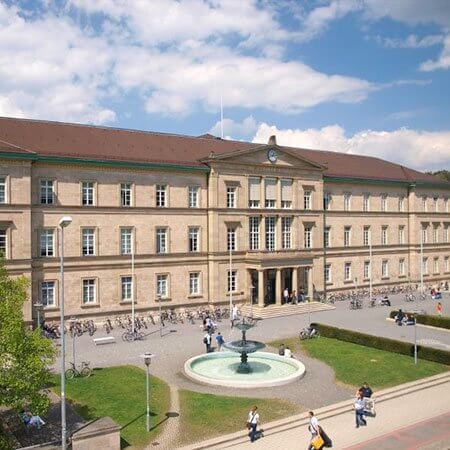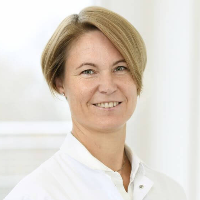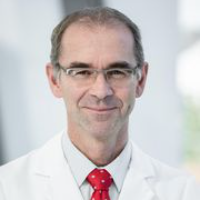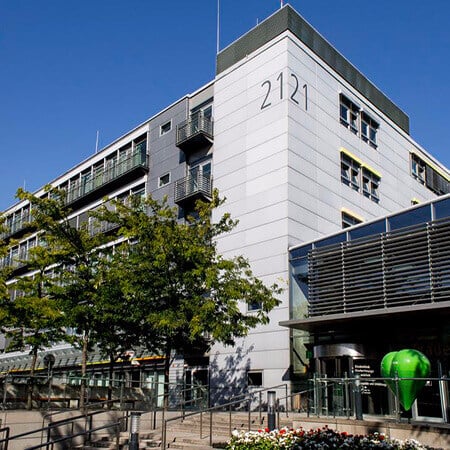Remains of Embryonic Tissue and Fetal Membranes — Therapeutic Curettage Under Control Hysteroscopy: treatment in the Best Hospitals of Germany
Treatment prices are regulated by national law of the corresponding countries, but can also include additional hospital coefficients. In order to receive the individual cost calculation, please send us the request and medical records.

Department of Adult and Pediatric Gynecology, Mammology, Obstetrics
According to the Focus magazine, the Department of Adult and Pediatric Gynecology, Mammology, Obstetrics is included in the ranking of the top German departments specializing in obstetrics and breast cancer treatment! The department offers the full range of diagnostics and treatment of diseases of the female reproductive system, breast pathologies. Also, the specialists of the department provide a comprehensive management of pregnancy, childbirth and postpartum care for both mother and child. Key attention is paid to the treatment of female genital cancers, as well as breast cancer treatment. For this purpose, the department has all the modern therapeutic techniques, as well as its our own innovative developments by the department doctors.







Department of Adult and Pediatric Gynecology, Mammology, Obstetrics
The Department of Adult and Pediatric Gynecology, Mammology, Obstetrics offers high-precision diagnostics and effective treatment of the full range of diseases of the female reproductive system and breast pathologies. The medical facility also employs a competent team of obstetricians, whose responsibilities include comprehensive management of pregnancy, childbirth, and postnatal care for mother and baby. More than 3,000 babies are born in the department's delivery rooms annually. The department cooperates closely with the UniFee Reproductive Medicine Center, which allows gynecologists to treat female infertility together with reproductive medicine specialists. The department's gynecologists focus on women with reproductive system cancers. The medical facility is certified by the German Cancer Society (DKG) as a specialized center. The specialists also successfully treat endometriosis, one of the most common benign gynecologic diseases. In the field of mammology, priority is given to the provision of medical care to women with breast cancer. Doctors perform comprehensive diagnostics, surgical and conservative treatment, and reconstructive plastic surgery after mastectomy. The department's specialists use state-of-the-art technical resources and their professional skills to provide each patient with high-quality medical service.







Department of Adult and Pediatric Gynecology, Mammology, Obstetrics and Reproductive Medicine
The Department of Adult and Pediatric Gynecology, Mammology, Obstetrics and Reproductive Medicine offers the full range of surgical and conservative treatment of pathologies of the female reproductive system, breast, as well as top-class obstetric services, including management of birth and postnatal care for both mother and baby. The department also has a Center for Reproductive Medicine, where one can undergo comprehensive diagnostics to detect the causes of infertility and use modern assisted reproductive technologies. The department's excellent technical equipment, highly qualified medical staff and the availability of advanced treatment methods allow providing optimal and individualized treatment at the highest level. The treatment of female reproductive cancers is of primary interest to the department's gynecologists. The department also admits girls and young women with congenital anomalies of the genital organs, menstrual disorders, delayed or premature puberty.






The remains of embryonic tissue and fetal membranes are the result of an incomplete spontaneous abortion or a complication of a medical abortion. If tissues remain in the uterus, they must be removed, otherwise they will become infected and inflamed. You can undergo your treatment of remains of embryonic tissue and fetal membranes in Germany. This country offers top-class gynecological services. Your treatment will be safe and will result in the full preservation of your reproductive function.
Content
A woman receives drug therapy. Inflammatory complications require antibiotics. If conservative therapy does not work, doctors carry out uterine curettage under hysteroscopic guidance.
You can seek medical attention from the University Hospital Ulm, the University Hospital Tuebingen, or the University Hospital Frankfurt am Main.
We will take care of all arrangements for your trip to Germany, from the stage of selecting a hospital and a doctor to translating medical records from the hospital into your native language and buying medicines to continue treatment in your country. The Booking Health team will help you to prepare medical documents, apply for a visa, come to a hospital or stay in an apartment. The specialists from the Booking Health company will also control the cost of medical services rendered, provide you with medical insurance, and advise you on any issue.
Diagnostics
Women who have fetal tissue in their bodies have had a spontaneous or medical abortion in the past. Part of the tissue comes out of the genital tract but some remains inside, causing the following symptoms:
- lower abdominal pain;
- discharge, sometimes purulent and with an unpleasant odor;
- vaginal bleeding;
- high body temperature;
- weakness and malaise.
During a gynecological examination, a doctor pays attention to the softening and soreness of the uterus. An ultrasound scan is required to confirm the diagnosis. Laboratory methods such as the beta-hCG test also help in the diagnostics.
How are the remains of the fetal egg and membranes treated?
A treatment method depends on the timing of a pregnancy and the prescription of an incomplete abortion. Previous treatment experience is also taken into account. For most women, conservative therapy is sufficient, but some of them still need an invasive intervention, namely, therapeutic curettage under control hysteroscopy. This procedure is similar to a medical abortion. Hysteroscopic guidance allows doctors to perform it more safely.
Conservative therapy
If there are no signs of infection, the remains of the fetal egg may come out on their own. Doctors carry out drug therapy with medicines that stimulate the contractile activity of the myometrium to help the uterus get rid of these tissues. The uterine muscles contract more strongly and push the remains of the fetal egg through the cervix and vagina into the external environment.
Hormone therapy can also be used to get rid of the remains of the embryo and fetal membranes. Doctors prescribe hormonal drugs. This type of treatment is called "hormonal curettage".
Some women develop infectious complications at the time of treatment. The fetal egg becomes infected with bacteria, and the endometrium is involved in the inflammatory process. In this case, a woman needs antibiotic therapy. Initially, it is prescribed empirically, and subsequently, the culture of the material on a nutrient medium with an assessment of the sensitivity of the isolated bacteria to antibiotics will be conducted. Whenever required, doctors can change the therapy regimen to a more effective one by using these antibiograms.
Invasive treatment
Dilation and curettage is the main treatment method for the remains of the fetal egg in the uterus. This is a short and minimally traumatic procedure, after which patients do not require any long-term rehabilitation. In Germany, it is performed on a one-day basis without a hospital stay.
The intervention is performed under intravenous anesthesia. In standard cases, a doctor dilates the cervix and scrapes out the functional layer of the endometrium along with the embryo remains using a curette. This is usually done under tactile control. This increases the risk of complications, such as uterine perforation or damage to the basal layer of the endometrium with the development of intrauterine synechiae and infertility.
In Germany, the procedure is carried out under hysteroscopic guidance. Doctors insert a thin tube with a video camera into the uterus to monitor their manipulations visually. Therefore, since the procedure is not performed blindly, the risk of damage to the uterus is minimal, and therefore complications of curettage are much less common at German hospitals.
You can undergo your diagnostics and treatment of remains of embryonic tissue and fetal membranes in Germany. You are welcome to use the Booking Health service to find the cost of medical services in different Centers for Obstetrics and Gynecology, compare prices, and make your treatment appointment at a favorable price. Our specialists will help you to select the most suitable clinics in Germany and arrange your trip.
Authors:
The article was edited by medical experts, board-certified doctors Dr. Nadezhda Ivanisova and Dr. Vadim Zhiliuk. For the treatment of the conditions referred to in the article, you must consult a doctor; the information in the article is not intended for self-medication!
Sources:

